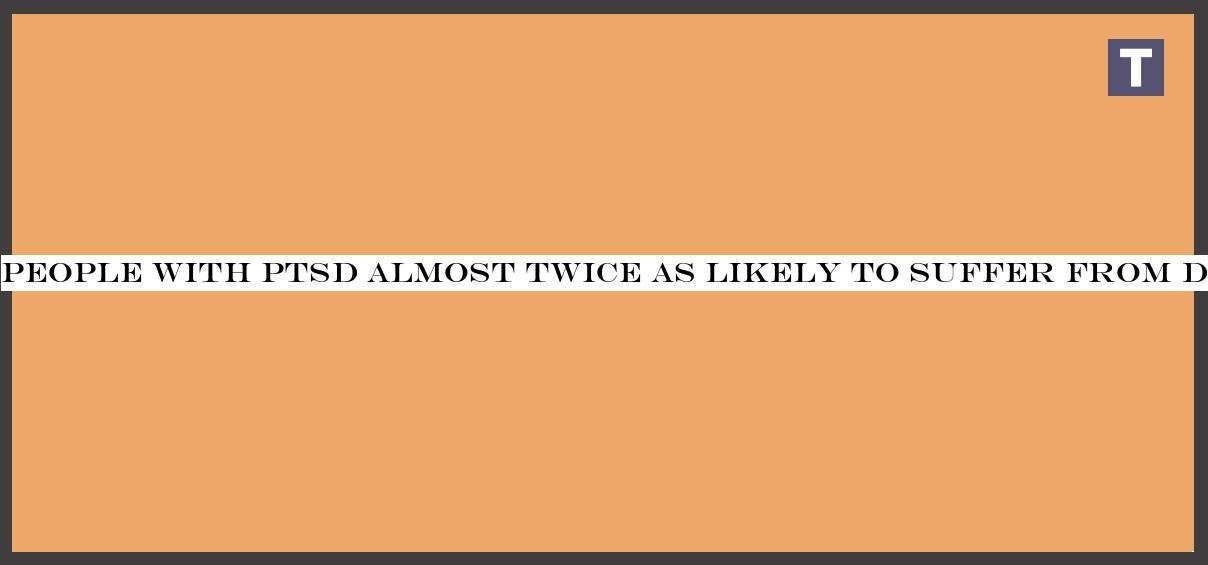INSUBCONTINENT EXCLUSIVE:
The fact that prolonged exposure to acute or chronic stress can have immense effect on the overall health of a patient is well known
the cardiovascular system and endocrine system (which regulates hormone production), but may also cause neurohormonal dysfunction, cognitive
impairment and neurodegenerative diseases in later life.PTSD and dementia among war veteransStress, in this regard, is linked with an
This connection between chronic and acute stress in the form of post-traumatic stress disorder (PTSD) and dementia is, however, more
established when it comes to war veterans, their mental health and future risks of dementia, rather than in the general population
PTSD is a form of severe anxiety disorder caused by very stressful, disturbing or traumatic life events
War veterans may be the largest section of society to be exposed to multiple traumatic events throughout their service years, which often
triggers PTSD in them.A study published in the Archives of General Psychiatry in 2010, for example, found that male veterans of the US army
diagnosed with PTSD were at nearly at double the risk of developing dementia compared with those without PTSD.Another US-based study
males, the risk of neurodegenerative disorders among women later in life may be higher too
This study indicated that the link between PTSD and dementia is quite strong among women and civilians as well as in veterans.PTSD and
dementia risks in the general populationA new study published in the British Journal of Psychiatry underlines this connection among the
general population and finds that people with PTSD are almost twice as likely to suffer from dementia later in life
Not only does this study focuses on PTSD and subsequent dementia risks among the general population, it also provides first of its kind
global evidence through a meta-analysis of 13 studies including data from 16,93,678 people.The study tried to analyse if a PTSD diagnosis
early in life led to a substantial increase in dementia risk up to 17 years later
The researchers found that the risk of developing dementia was almost twice as high among people from the general population rather than
The reason behind this disparity, the researchers explained, is simply that war veterans are more likely to get active screening for PTSD as
part of the medical service provided to them.This suggests that war veterans are more likely to get an early diagnosis and appropriate
support as well as treatment for PTSD when compared to the general population, which in turn reduces their subsequent dementia risks later
In the absence of such screenings, support and treatment, PTSD patients in the general population still face double the risk of developing
dementia in later life.The researchers behind this study go further to suggest that this risk among the general population may be even
higher than their findings suggest, precisely because of the stigma still attached to mental health disorders, the reluctance of people with
such disorders to get help, and poor access to appropriate mental healthcare programmes and facilities
But these challenges, the study recommends, need to be overcome not just because of PTSD increasing dementia risks but also because PTSD
also increases the risks of other health issues, including major depressive disorder, suicidal thoughts and tendencies, social isolation and
alcohol and substance abuse.For more information, read our article on Post-traumatic stress disorder.Health articles in Firstpost are
At myUpchar, researchers and journalists work with doctors to bring you information on all things health.

